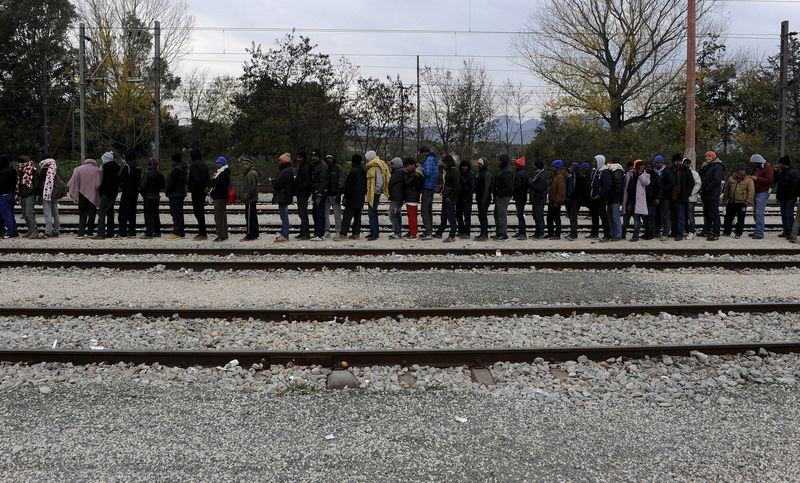BRUSSELS (Reuters) - Irregular migrants to Europe should be detained for as long as needed to check their identity and if need be up to the 18 months allowed by international law, European Council President Donald Tusk said.
In an interview with several newspapers marking his first year in office, the man whose job it is to forge common EU policy among 28 national governments said Europe had to stop a huge influx of migrants, most of them not refugees from war, and should not underestimate the security threat it represented.
Tusk, a former Polish prime minister, played down differences with German Chancellor Angela Merkel, who has taken a lead in accepting hundreds of thousands of Syrian refugees. But he stressed that it was a priority to protect the external frontiers of Europe's internal, passport-free Schengen zone.
Speaking two weeks after the Islamic State attacks in Paris, in which some of the militants may have reached France from Syria via the migration route to Greece, Tusk said border guards needed time to properly identify people who were arriving in the EU.
Stating that international and EU rules allowed detention up to 18 months for such checks, he was quoted by Germany's Sueddeutsche Zeitung as saying: "We can and should hold migrants for as long as needed until the verification is complete."
Italy and Greece, the main countries of entry to the EU for irregular migrants, have been reluctant to detain people and the United Nations says people seeking asylum should be locked up only as a last resort. EU officials, however, have grown impatient with large numbers of people simply trekking north to Germany.
"It's too easy to get into Europe," Tusk said. "It is often said that we must be open to Syrian refugees. But these are only 30 percent of the inflow. Seventy percent are (economic) migrants. Also for this reason we need more effective controls."
Asked about Merkel's push for other EU states to do more to take in asylum-seekers, Tusk said he could only persuade her opponents to help Germany if the EU was protecting its borders. He also questioned the view that migration pressure was too great to be stopped and could only be managed and distributed.

"This wave of migration is too big not to be stopped," Tusk said, saying that even Germany could not take an endless number.